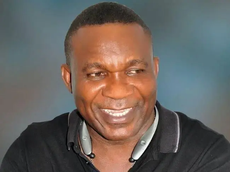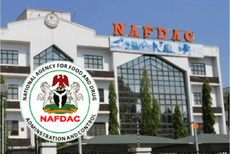Why the nationwide strike was put on hold - NLC, TUC

On Tuesday, June 5th, leaders of the Nigeria Labour Congress (NLC) and the Trade Union Congress (TUC) explained why they decided to call off the planned statewide strike to pressure the Federal Government to reverse the 200 per cent increase in the price of gasoline at the pump.
After yesterday's emergency National Executive Council, NEC, meeting, NLC's president and general secretary, Mr Joe Ajaero and Emma Ugboaja, cited the state of the nation due to the ongoing legal challenge of the presidential election results, the need to pursue national stability, and the restraining order obtained by the Federal Government from the National Industrial Court, NIC, as justifications for the decision to postpone the planned strike.
However, in violation of the Supreme Court's position on the use of this instrument, the communiqué released after the conference accused the NIC of continuing to weaponize ex-parte injunctions in favour of the government against the interests of Nigerian workers.
The statement, which was signed by both Ajaero and Ugboaja, recalled that the previous NEC-in-Session had directed a nationwide shutdown of services and widespread demonstration in response to the Federal Government's increase in the price of gasoline, even though the government violated the 2023 Appropriations Act, and vowed that the NLC would not support lawlessness.
According to the communiqué, "Some levels of understanding were reached taking into consideration that the Federal Government has procured a court injunction restraining congress from proceeding with the proposed nationwide strike as the NEC-in-session had ordered to begin, Wednesday, June 7, 2023, and recognizing the willingness of government for continuous engagement through dialogue and to offer reasonable palliatives in due course to cushion the effect of its policies."The NEC-in-session also decided to recognize and applaud the assiduity of the congress leadership in carrying out the task entrusted to it by the NEC in light of the socio-political climate of the most recent elections and the necessity to promote national stability.
"It showed the Federal Government the importance of abiding by the law, particularly when it comes to court ruling adherence and their flagrant disdain for the 2023 Appropriations Act."
"NEC-in session, therefore, supports and accepts the decision of the leadership of Congress to suspend the proposed strike in compliance with the faulty NIC rulings and to also permit free-flowing negotiations and enable final agreement during or after June 19, 2023, negotiation round with the Federal Government ex-parte injunctions used as a weapon against employees".
“However, the NEC-in-Session expresses its extreme anger and disapproval of the National Industrial Court's (NIC) decision for continuing to weaponize ex-parte injunctions in favor of government."
In contravention of the Supreme Court's stance on the use of this weapon, against the interests of Nigerian workers.
All of Congress' affiliates and state councils are hereby ordered to halt all activity until the conclusion of the final discussions. The NEC-in-Session applauds all affiliates and state councils for their effective mobilization in support of a successful nationwide strike and encourages them to continue to be on high alert in case further action is required.
The Trade Union Congress, or TUC, similarly claimed that it had decided to abandon its planned strike because the government was prepared to provide all of its requests.
The union included payment of a new minimum wage of N200,000 as one of its demands.
"Sincerely, we went into the meetings or negotiations with the government and they accepted all our demands," TUC Secretary General Nuhu Toro said in an interview yesterday. There was no need to carry out any form of industrial action in that situation. An ultimatum's main purpose is to get the government's attention so we can make our requests, which we did. It's not over, in any case. On June 19, we will meet to discuss the situation.
Remember how the NLC, after an emergency National Executive Council, NEC, meeting, stated in a communiqué on Friday that it had "considered the enormous suffering pervading the nation, the outrage expressed by the majority, and the increased attendant fears of the consequences of the PMS Price spike unanimously denounced the federal government's conduct and came to the conclusion that the announcement of the PMS subsidy's withdrawal was illegal.
The 2023 Appropriation Act makes provisions for the funding of the PMS subsidy regime through the end of June 2023, it continued. It is unreasonable for the government to adopt actions with the knowledge that they will cause suffering to the people and workers without putting sufficient safeguards in place. There have already been discussions regarding an agreement reached with the government regarding the prerequisites for the termination of the PMS subsidy. The local refineries, particularly the four public-owned ones, have remained paralyzed because the government has been unable to turn them around operationally. We won't agree to any price increases for petroleum products until they are processed domestically. The decision by the Federal Government was made unilaterally and is consequently in opposition to the principles of national consensus and social dialogue.
The government, leaders of the NLC, and their TUC counterparts met earlier on Thursday, June 2, but failed to make progress in resolving the impending statewide industrial unrest on Sunday, the meeting was rescheduled. The TUC, on the other hand, attended the meeting and made some requests, including an N200,000 minimum wage proposal to the Federal Government. The NLC, on the other hand, avoided the meeting and insisted on the reversal of the price hike as a prerequisite for further meetings. However, NLC leaders changed their minds on Monday and decided to hold more government-related meetings.
The news that the government had obtained a court order prohibiting the NLC and TUC from carrying out their planned strike, which was supposed to have started today, surfaced during the meeting. Later, TUC leaders joined the meeting where it was decided to put the planned strike on hold. Along with other things, organized labour and the federal government also agreed that the current PMS price would remain in place until June 19, when all parties would resume their discussion of the disputed problems Reps urged FG to put resolutions into effect.
The Nigeria Labour Congress, or NLC, was applauded by the House of Representatives yesterday for postponing its planned strike that was set to begin today over the removal of gasoline subsidies.
The House praised the decision to engage in negotiations with the federal government.
Idem Unyime made a motion in the plenary that was followed by the commendation.
In adopting the resolution, the House recognized the significant amount of money that has been spent on subsidies in the past but encouraged the federal government to make sure that the money saved by eliminating subsidies was used for other developmental projects.
The suspension of the planned strike was also praised, and it also urged for the execution of agreements made with established labour organizations.
Related news






More hardship for Nigerians as prices of rice, beans, garri, and others spike by 50%


Scarcity of Forex, and high price of aviation fuel threatening our operations – Airline operators


More news »
Latest Posts

Top 5 best cheapest and fastest VPS hosting providers

What is remote work? (Meaning, Examples, Type, Pros and Cons)

How to become a professional Writer, (step-by-step guide)

Tips for becoming a successful public speaker, and monetizing your skill

Creating And Selling A Successful YouTube Channel
More Posts »